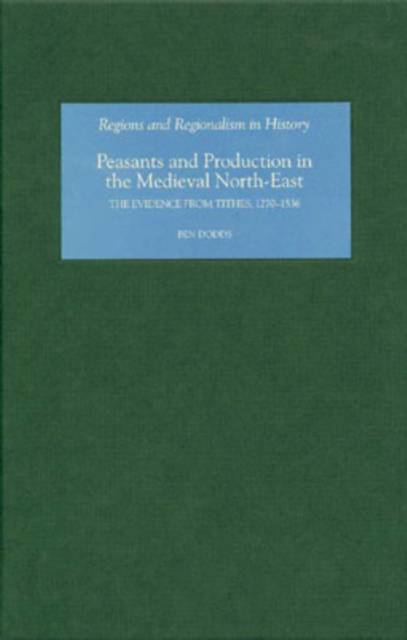
- Afhalen na 1 uur in een winkel met voorraad
- Gratis thuislevering in België vanaf € 30
- Ruim aanbod met 7 miljoen producten
- Afhalen na 1 uur in een winkel met voorraad
- Gratis thuislevering in België vanaf € 30
- Ruim aanbod met 7 miljoen producten
Zoeken
€ 177,45
+ 354 punten
Omschrijving
The study draws on sources hitherto unused by historians of England to examine the patterns of change and the scope for adaptability in the peasant economy in the area between the Tyne and Tees during the late middle ages. It reaches two main conclusions. The first is that the peasant economy in this region of England was profoundly affected by war in the early fourteenth century and then disease with the arrival of the Black Death in 1349. This calls into question historians' reliance on theories of overpopulation in explaining the 'crisis' of the late middle ages: even at its medieval peak, the population of northeast England was sparse by comparison with areas further south. Nor did the availability of land and improved living standards lead to demographic recovery in the fifteenth and early sixteenth centuries. The second main conclusion is that, despite their vulnerability to crises, peasant cultivators were highly responsive to change. Far from being primitive subsistence farmers oblivious to the market and its signals, medieval peasants in the Durham region were subtle and successful decision-makers regarding the production and marketing of their output.
Specificaties
Betrokkenen
- Auteur(s):
- Uitgeverij:
Inhoud
- Aantal bladzijden:
- 220
- Taal:
- Engels
- Reeks:
Eigenschappen
- Productcode (EAN):
- 9781843832874
- Verschijningsdatum:
- 19/04/2007
- Uitvoering:
- Hardcover
- Formaat:
- Genaaid
- Afmetingen:
- 161 mm x 234 mm
- Gewicht:
- 476 g

Alleen bij Standaard Boekhandel
+ 354 punten op je klantenkaart van Standaard Boekhandel
Beoordelingen
We publiceren alleen reviews die voldoen aan de voorwaarden voor reviews. Bekijk onze voorwaarden voor reviews.








